
Herbert George Wells was an English writer. Prolific in many genres, he wrote more than fifty novels and dozens of short stories. His non-fiction output included works of social commentary, politics, history, popular science, satire, biography, and autobiography. Wells' science fiction novels are so well regarded that he has been called the "father of science fiction".

The Time Machine is a post-apocalyptic science fiction novella by H. G. Wells, published in 1895. The work is generally credited with the popularization of the concept of time travel by using a vehicle or device to travel purposely and selectively forward or backward through time. The term "time machine", coined by Wells, is now almost universally used to refer to such a vehicle or device.
Counterfactual history is a form of historiography that attempts to answer the What if? questions that arise from counterfactual conditions. As a method of intellectual enquiry, counterfactual history explores history and historical incidents by extrapolating a timeline in which key historical events either did not occur or had an outcome different from the actual historical outcome. Counterfactual history seeks by "conjecturing on what did not happen, or what might have happened, in order to understand what did happen." It has produced a literary genre which is variously called alternate history, speculative history, allohistory, and hypothetical history.
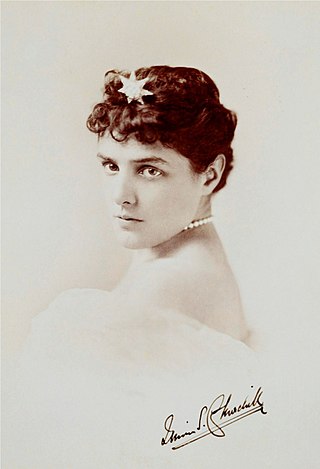
Jeanette Spencer-Churchill, known as Lady Randolph Spencer-Churchill, was an American-born British socialite, the wife of Lord Randolph Churchill, and the mother of British prime minister Winston Churchill.

William Raymond Manchester was an American author, biographer, and historian. He was the author of 18 books which have been translated into over 20 languages. He was awarded the National Humanities Medal and the Abraham Lincoln Literary Award.

Winston Churchill was an American best-selling novelist of the early 20th century.
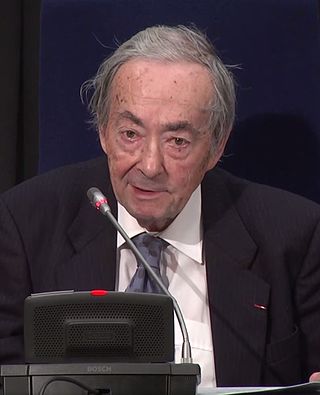
Francis George Steiner, FBA was a Franco-American literary critic, essayist, philosopher, novelist and educator. He wrote extensively about the relationship between language, literature and society, as well as the impact of the Holocaust. A 2001 article in The Guardian described Steiner as a "polyglot and polymath".

Andrew Roberts, Baron Roberts of Belgravia,, is an English popular historian, journalist and member of the House of Lords. He is the Roger and Martha Mertz Visiting Research Fellow at the Hoover Institution at Stanford University and a Lehrman Institute Distinguished Lecturer at the New-York Historical Society. He served as a trustee of the National Portrait Gallery from 2013 to 2021.

Winston Francis Groom Jr. was an American author. He is best known for his novel Forrest Gump (1986), which became a cultural phenomenon after being adapted as a 1994 film of the same name, starring Tom Hanks. After the film was released, gaining a high box office and winning numerous awards, Groom's novel sold more than one million copies worldwide. Groom wrote a sequel, Gump and Co., published in 1995. His last novel was El Paso (2011).
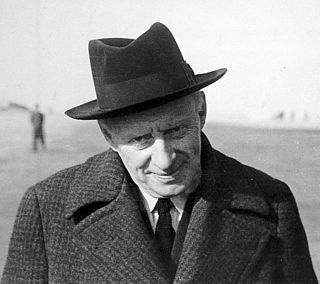
Charles McMoran Wilson, 1st Baron Moran, MC, PRCP was personal doctor to Winston Churchill from 1940 until the latter's death in 1965. His book The Struggle for Survival revealed much about Churchill's physical and psychological state, possibly including clinical depression, while coping with the strain of high office. It was not, however, the strict historical record that it appeared to be, as it lacked any accredited sources, such as diary-entries or confirmed reporting of conversations. Some people also felt that it breached patient–doctor confidentiality.
This is a list of bestselling novels in the United States in the 1910s, as determined by The Bookman, a New York–based literary journal (1910–1912) and Publishers Weekly. The list features the most popular novels of each year from 1910 through 1919.
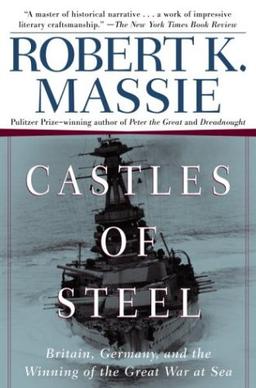
Castles of Steel: Britain, Germany, and the Winning of the Great War at Sea is a work of non-fiction by Pulitzer Prize-winner Robert K. Massie. It narrates the major naval actions of the First World War with an emphasis on those of the United Kingdom and Imperial Germany. The term "castles of steel" was coined by the British First Lord of the Admiralty Winston Churchill in reference to the large number of the Royal Navy's battleships he saw at Spithead in 1914.

Winston Churchill, in addition to his careers as a soldier and politician, was a prolific writer under the variant of his full name 'Winston S. Churchill'. After being commissioned into the 4th Queen's Own Hussars in 1895, Churchill gained permission to observe the Cuban War of Independence, and sent war reports to The Daily Graphic. He continued his war journalism in British India, at the Siege of Malakand, then in the Sudan during the Mahdist War and in southern Africa during the Second Boer War.
Great Contemporaries is a collection of 25 short biographical essays about famous people, written by Winston Churchill.

George G. Harrap, Ltd was a publisher of speciality books, many of them educational, such as the memoirs of Winston Churchill, or highly illustrated with line drawings, engravings or etchings, such as the much republished classic educational children's book The Cave Boy of the Age of Stone from at least 1901 into the 1980s.
Publishers of English classics for the educational trade, Harrap was also known for publishing finely illustrated books by Rackham, Gooden, and others, and as the publisher of Winston Churchill.

Bodyguard of Lies is a 1975 non-fiction book on Allied military deception operations during the World War II written by Anthony Cave Brown. His first major historical work, it derives its name from a wartime quote of Winston Churchill, and offers a narrative account of aspects of both the Allied and German intelligence operations during the war. The British and American governments resisted Brown's attempts to research the book. Many of the topics were still classified and he was denied access to British war records. The material in the book is predominantly based on oral testimony as well as some American records, declassified toward the end of Brown's research.
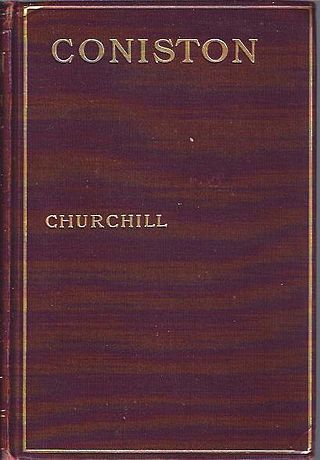
Coniston is a 1906 best-selling novel by American writer Winston Churchill.
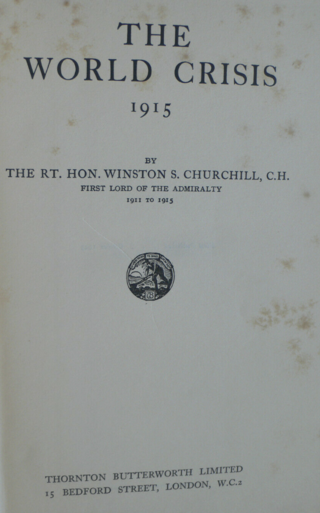
The World Crisis is Winston Churchill's account of the First World War, published in six volumes. Published between 1923 and 1931: in many respects it prefigures his better-known multivolume The Second World War. The World Crisis is analytical and, in some parts, a justification by Churchill of his role in the war. Churchill denied it was a "history," describing the work in Vol. 2 as "a contribution to history of which note should be taken together with other accounts."

Winston Churchill was introduced to painting during a family holiday in June 1915, when his political career was at a low ebb. He continued this hobby into his old age, painting over 500 pictures of subjects such as his goldfish pond at Chartwell and the landscapes and buildings of Marrakesh. He sold some works, but he also gave away many of the works that he self-deprecatingly described as "daubs" as gifts.

The 1953 Nobel Prize in Literature was awarded to the Prime Minister of the United Kingdom Sir Winston Churchill (1874–1965) "for his mastery of historical and biographical description as well as for brilliant oratory in defending exalted human values." He is the sixth British writer to receive the prize, coming after the philosopher Bertrand Russell in 1950.

















